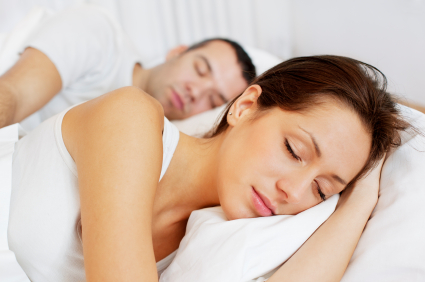
It’s a really good question! In these crazy times when it seems nobody gets enough rest, how do we know how much sleep is right for each of us – and how to get it? We all know getting enough sleep is important to our mental and physical health, but as it turns out, sleep the MOST important determinant of our longevity; more important than other variable including diet, exercise or heredity.
Getting the Ideal Number of Hours of Sleep
Unfortunately, there is no set answer to how many hours of sleep an adult needs each night. It varies from one individual to another and is determined by age, sex, genetics and many other factors. What we do know is that in general, most adults require 7 to 8 hours of sleep, but some require as few as 5 or as many as 10 hours. How do you know what’s right for you? When you’ve had enough sleep you should wake spontaneously, without an alarm clock, feeling refreshed and alert. Of course, that’s not always possible – we live with deadlines and schedules. So the question remains, how much sleep can we afford to get or not get, without affecting our health and performance of everyday tasks?
Do we sleep as much as we used to?
A study found that the average number of hours of sleep of middle aged individuals decreased from 1959 to 1992, going from 8-9 hours to 7-8 hours. Another study found that the percentage of people getting 6 or fewer hours of sleep increased from 24% to 30% in the last 20 years. What are the negative consequences?
JUDGING OUR ALERTNESS. An individual’s perception of sleepiness starts to level off after a few days – i.e. sleep restricted people will be unaware of their continuing deterioration in alertness. This can have profound safety consequences (e.g. safe motor vehicle operation, ability to make critical decisions, etc.).
HEALTH CONSEQUENCES. Studies have shown that chronic sleep deprivation leads to increased heart rate and blood pressure, increased inflammation (a risk factor for coronary artery disease), impaired glucose tolerance (which can be a prelude to diabetes) and increased hunger/appetite which could promote obesity.
IMMUNE RESPONSE CHANGES. In one study, young adults who had been given a flu shot after four nights of reduced sleep had less than half of the antibody response 10 days later compared with individuals having normal sleep at the time of vaccination.
The good news is that sleep deprivation is usually an easy problem to remedy. Make sleep a priority! Also, always keep in mind that changes in sleep or alertness can also be associated with conditions such as sleep apnea, diabetes or thyroid dysfunction and should be discussed with your physician.
Here are a few tips to help: The 4 R’s
Regularize. Identify how much sleep you need to wake up alert every day and then stick with it! Go to sleep and get up at the same time each day. Get the same amount of sleep every night, even on weekends. Ideally, wake without an alarm clock. Avoid naps unless they are regular. If you miss out on sleep one night, try to repay your “sleep debt” asap.
Ritualize. Create an atmosphere that’s quiet, cool, dark and safe. Keep distractions away. A haven for sleep will help you get continuous rather than fragmented sleep, which is much more restful.
Relax. Learn healthy ways to control stress and relax so that sleep comes easier. Many say meditation works to calm and centre your emotions. Others find a book and warm bath are the perfect coping routine.
Resist. Yep, you need to stay away from tobacco, alcohol and caffeine near bedtime. As well, don’t exercise strenuously within 3 hours of going to bed. Finally, avoid heavy meals close to bedtime
All the studies point to one thing: sufficient rest is critical for our mental and physical health! For more information on getting a good night’s rest visit:

Leave a Reply